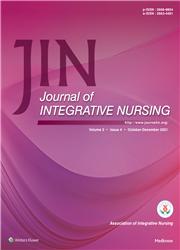Validation of short version of evidence-based practice instruments among nurses in clinical practice: Evidence-based practice beliefs, implementation, and organizational culture
Q4 Nursing
引用次数: 0
Abstract
Objective: The objective of the study is to validate the short version of evidence-based practice (EBP) instruments among nurses in clinical practice. Methods: An institutional-based cross-sectional research design was used and a stratified sampling technique to select 285 nurse clinicians. The study utilized a structured questionnaire comprising of demographic data from the participants and three validated scales: the shortened versions of the EBP Beliefs Scale, the EBP Implementation Scale, and the Organizational Culture and Readiness for System-Wide Integration of Evidence-Based Practice (OCRSIEP) survey. With the use of descriptive statistics, the data were analyzed and presented in frequencies and percentages, while inter-item correlation coefficient (ICC) and the Kaiser-Meyer–Olkin measure of sampling adequacy were used to confirm the validity of using factor analysis. Results: Findings revealed the mean scores of the EBP Beliefs Scale ranged from 1.50 to 1.61, EBP Implementation Scale ranged from 1.84 to 1.94, and the OCRSIEP Scale ranged from 1.93 to 2.19. All the three shortened scales accordingly had good internal reliability, 29.30 ± 9.93 out of 80 for the EBP Beliefs Scale, 19.56 ± 7.37 out of 72 for the EBP Implementation Scale, and 66.32 ± 20.35 out of 125 for the OCRSIEP Scale. Conclusion: This study has generated a valid Short Version of EBP reliable instrument that is psychometrically robust that can be used by nurses and clinicians to evaluate EBP in clinical settings since the results presented as a whole confirmed the high reliability and factorial validity.临床实践中护士简版循证实践工具的验证:循证实践信念、实施和组织文化
目的:本研究的目的是在护士临床实践中验证简版循证实践(EBP)工具。方法:采用基于机构的横断面研究设计和分层抽样技术,抽取285名临床护士。本研究采用了一份结构化问卷,包括参与者的人口统计数据和三个经过验证的量表:EBP信念量表、EBP实施量表和组织文化和基于证据的全系统整合实践准备(OCRSIEP)调查。采用描述性统计对数据进行分析,以频率和百分比表示,并采用项目间相关系数(inter- correlation coefficient, ICC)和Kaiser-Meyer-Olkin抽样充分性测度来验证因子分析的有效性。结果:EBP信念量表的平均得分为1.50 ~ 1.61分,EBP执行量表的平均得分为1.84 ~ 1.94分,OCRSIEP量表的平均得分为1.93 ~ 2.19分。三个缩短的量表均具有良好的内部信度,EBP信念量表为29.30±9.93(满分80分),EBP实施量表为19.56±7.37(满分72分),OCRSIEP量表为66.32±20.35(满分125分)。结论:本研究生成了一个有效的短版本的EBP可靠工具,该工具具有心理测量学上的鲁棒性,可以被护士和临床医生用于临床环境中评估EBP,因为结果整体上证实了高信度和析因效度。
本文章由计算机程序翻译,如有差异,请以英文原文为准。
求助全文
约1分钟内获得全文
求助全文
来源期刊

Journal of Integrative Nursing
Nursing-General Nursing
CiteScore
0.40
自引率
0.00%
发文量
3
审稿时长
17 weeks
 求助内容:
求助内容: 应助结果提醒方式:
应助结果提醒方式:


